Categorization skills Easy Math Worksheets for Ages 6-8
6 filtered results
-
From - To
Enhance your child's learning journey with our "Categorization Skills Easy Math Worksheets" designed specifically for ages 6-8. These engaging, printable worksheets promote critical thinking and help young learners organize information effectively. With fun activities tailored for developing categorization skills, children will enjoy sorting items, matching similar objects, and identifying patterns. Our materials align with educational standards, ensuring that kids build a solid foundation in math while fostering essential cognitive skills. Ideal for both classroom settings and home learning, these worksheets provide a supportive environment for growth and discovery. Start empowering your child's math abilities today with our colorful, interactive resources!
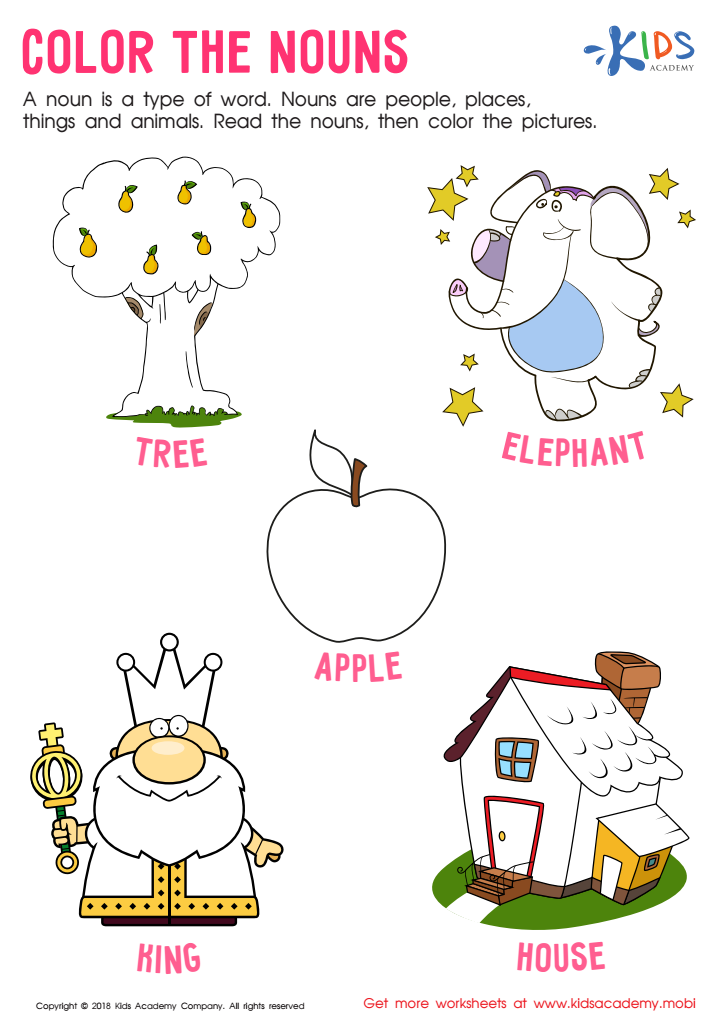

Color the Nouns Worksheet
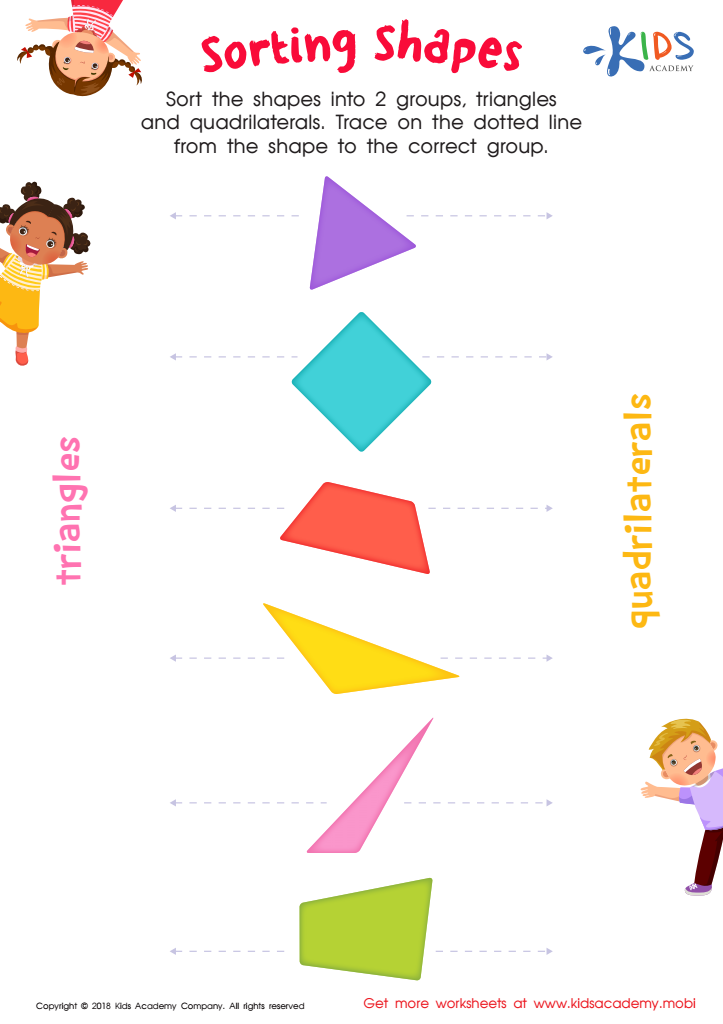

Sorting Shapes Worksheet
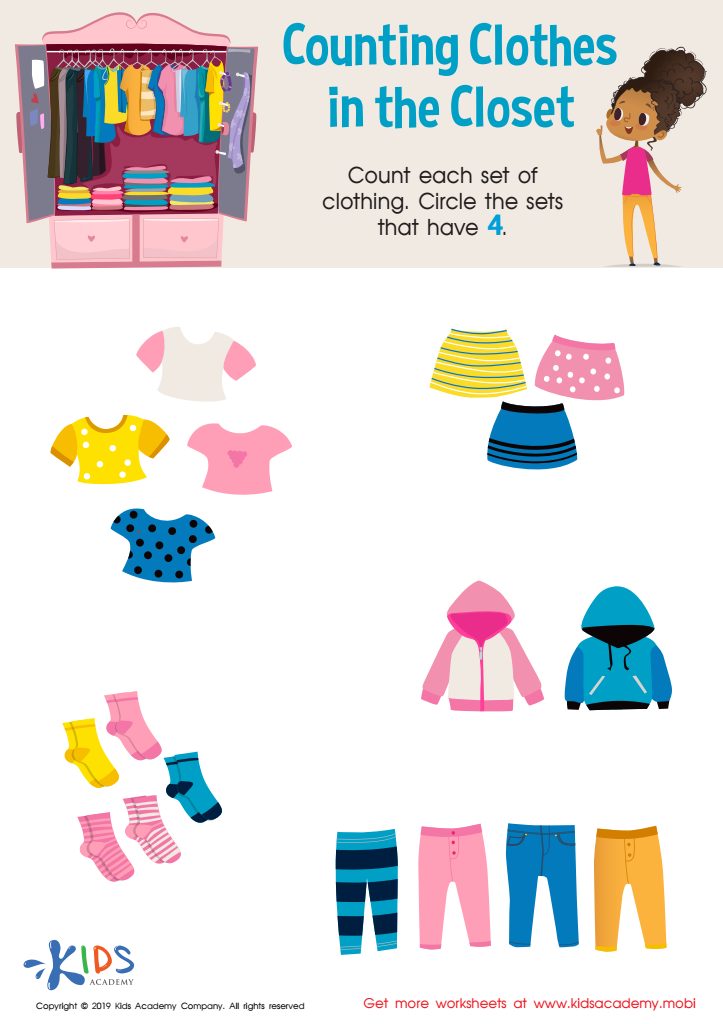

Counting Clothes Worksheet
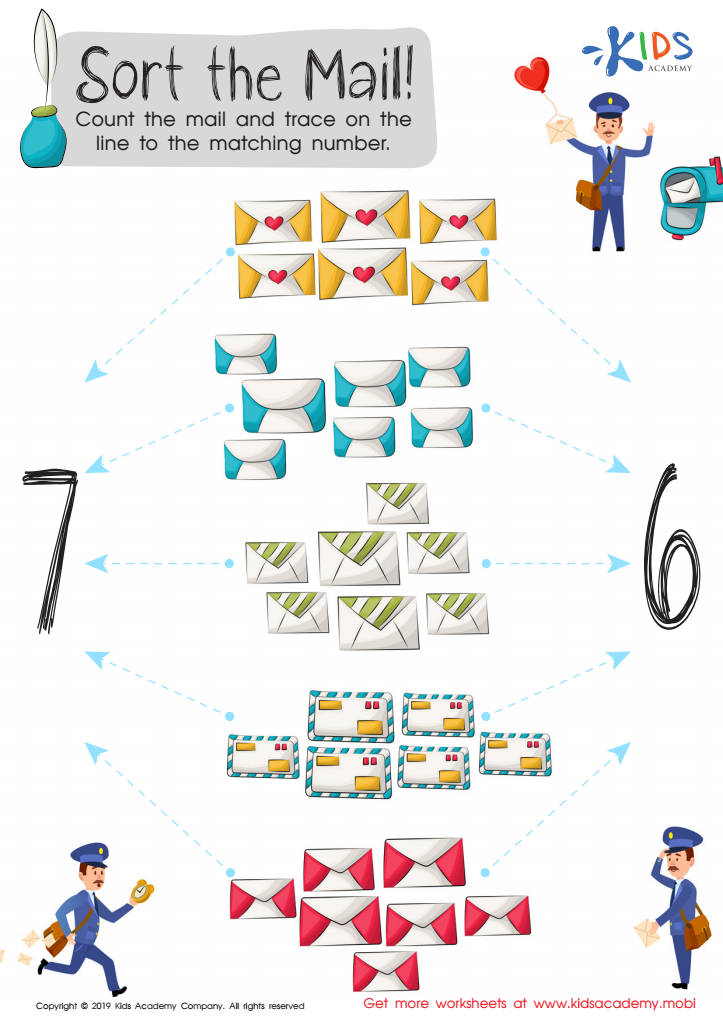

Sort the Mail Worksheet
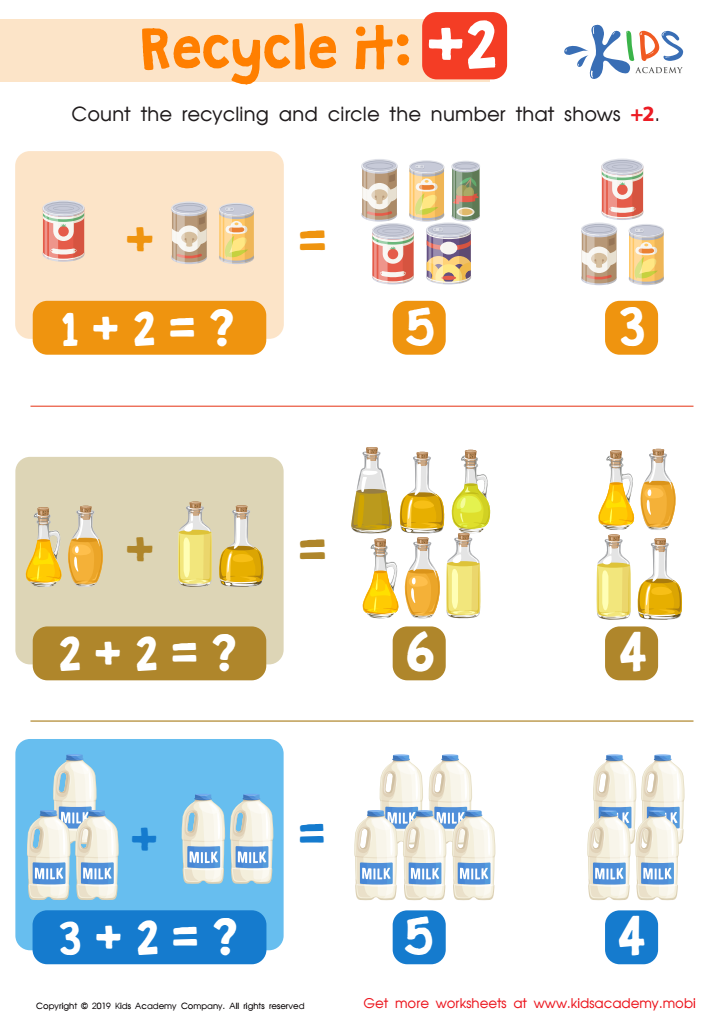

Recycle It: +2 Worksheet
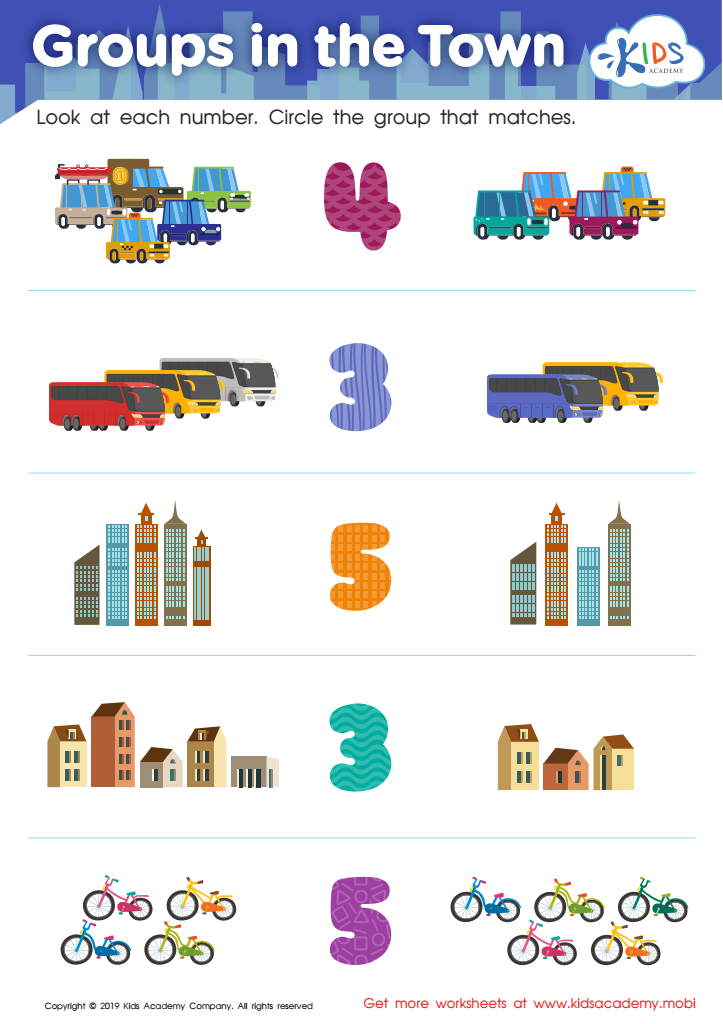

Groups in the Town Worksheet
Categorization skills in easy math are essential for children aged 6-8, as they lay the foundation for critical thinking and problem-solving. At this stage, children start to explore more complex mathematical concepts, and the ability to categorize helps them organize and understand information. When learners can group items based on shared characteristics—such as size, shape, color, or quantity—they enhance their logical thinking and boost their cognitive development.
Teaching categorization skills supports learning in several key ways. Firstly, it aids comprehension of basic math concepts, such as addition and subtraction, by allowing students to visualize and manipulate groups of objects. For example, when subtracting, children can visualize removing a specific category of items from a larger group.
Additionally, categorization skills encourage children to make connections between different concepts. For instance, recognizing patterns in numbers or geometry helps pave the way for more advanced math skills in later grades.
Furthermore, these skills foster confidence and independence in young learners, as they become more adept at organizing information. Parents and teachers should prioritize the development of categorization skills, as they are vital for overall academic success and essential life skills. This focus will ultimately help children become effective, analytical thinkers.
 Assign to My Students
Assign to My Students
















